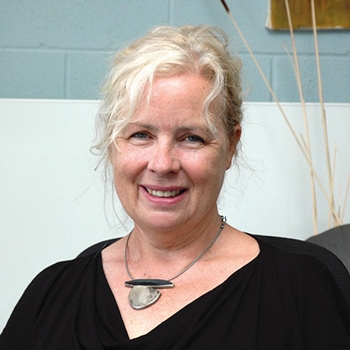Professor Melanie Cooper of Michigan State University will give a seminar titled "Evidence-based approaches to curriculum reform and assessment" on Zoom from 3:30-4:30 p.m. today, Monday, Sept. 13. The talk is free and open to the public.
Cooper, professor of chemistry and the Lappan-Phillips Professor of Science Education, is a renowned education scholar who has focused her career on improving teaching and learning in large-enrollment general and organic chemistry courses and is a leader in evidence-based curriculum reform. Cooper holds joint appointments in the MSU Departments of Chemistry and Teacher Education, and is a faculty member of the CREATE for STEM Institute.
Cooper received her B.S., M.S. and Ph.D. in chemistry from the University of Manchester, England. Before joining MSU in January 2013, she conducted postdoctoral work in organic chemistry at Clemson University in South Carolina.
Cooper's dedication to the improvement of teaching chemistry in higher education is evidenced through her involvement in many professional organizations. She is a fellow of the American Association for the Advancement of Science, the American Chemical Society and the Royal Society of Chemistry, and is a member of the National Research Council Advisory Board on Science Education. Her many honors include the ACS Award for Achievement in Research on Teaching and Learning in Chemistry, the Norris Award for Outstanding Achievement in the Teaching of Chemistry and the Outstanding Undergraduate Science Teacher Award from the Society for College Science Teaching. In December 2106, Cooper was awarded an honorary doctorate of science by the University of South Florida.
"There is growing body of work from the learning sciences providing us with insights into how people learn; and from Discipline Based Education Research (DBER) we know what discipline-specific difficulties students face. However, it is quite surprising that relatively little of this understanding has made its way into the design of science and engineering curricula offered at most colleges and universities," Cooper says.
This presentation will focus on the need for evidence-based curriculum transformations, the research findings that can guide them and how we might assess the results of these transformations. An approach to systemic reform that focuses on core ideas, scientific practices and cross-cutting concepts, will be discussed. Examples of such curriculum reform efforts "Chemistry, Life, the Universe and Everything" (CLUE) and the subsequent organic chemistry version (OCLUE), will be presented, along with the evidence to support such transformations.
To attend the seminar, please visit the Zoom link.
Meeting ID: 862 5015 5151
Passcode: Fall@2021
Topics
Contacts
Megan Parette, communications officer
Department of Chemistry and Biochemistry
479-575-4601, mbparett@uark.edu
